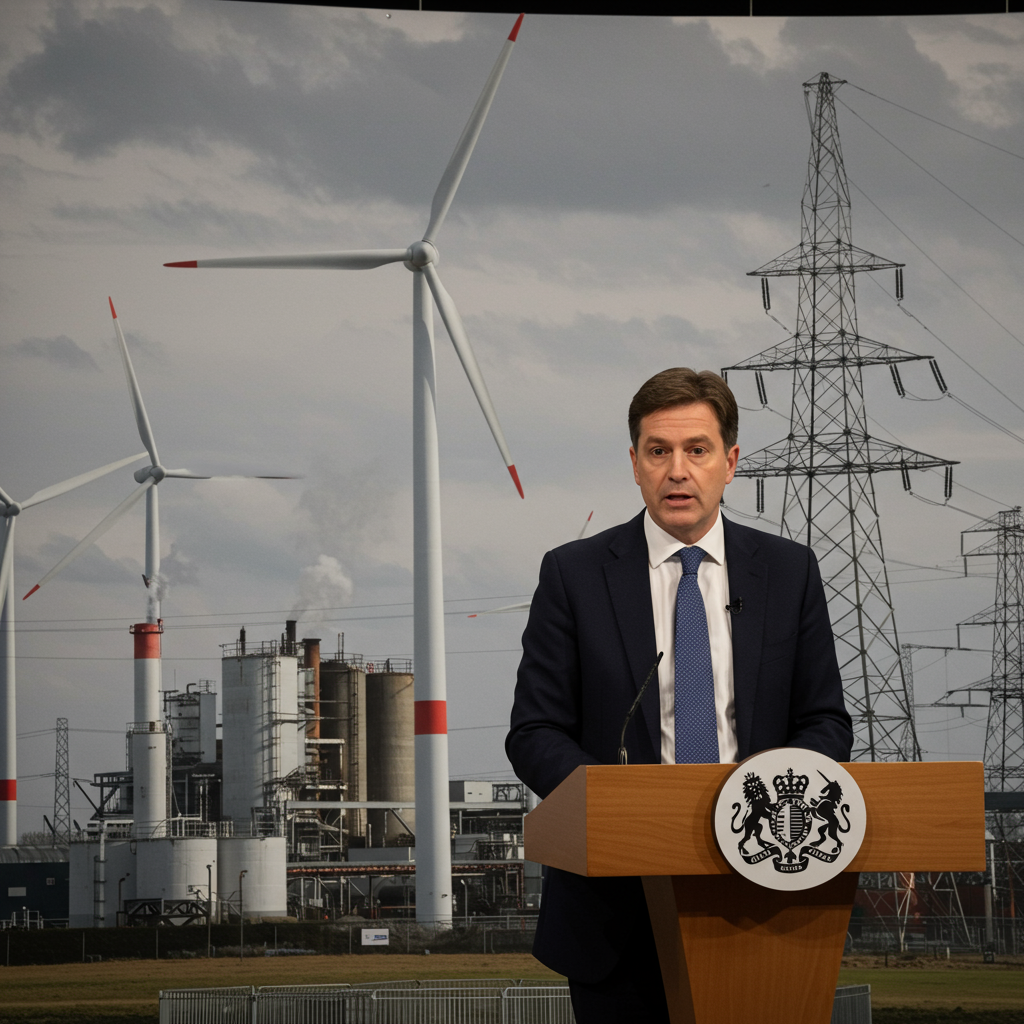UK Government Unveils Plan to Dramatically Cut Industrial Energy Costs
In a significant move aimed at boosting British industry, the UK’s incoming government has announced plans to cut electricity bills for industrial users by up to 25% starting in 2027. The promise comes as a central pillar of the government’s new 10-year industrial strategy, positioning energy reform as critical to enhancing national competitiveness and driving economic growth.
For years, UK manufacturers have highlighted that high energy costs place them at a disadvantage compared to international competitors, raising concerns about investment and the risk of de-industrialisation. The government’s strategy is a direct response to these pressures, with ministers stating they have “listened” to businesses facing this “greatest challenge.”
How the Cuts Will Work: Key Schemes Detailed
The plan involves targeted measures to reduce the burden of energy costs on businesses, primarily through exemption from certain levies and charges:
British Industrial Competitiveness Scheme: Set to begin in 2027, this scheme will exempt over 7,000 manufacturing firms from major green levies currently included in their bills. These include the Renewables Obligation, Feed-in Tariffs, and the Capacity Market. This measure is projected to cut electricity costs by up to £40 per megawatt hour for eligible businesses. The government aims to level the playing field with European rivals and protect an estimated 300,000 jobs across various sectors, including automotive, aerospace, and chemicals. Crucially, funding for these reforms will come from changes to the energy system and carbon pricing regime, explicitly without increasing taxes or household bills.
British Industry Supercharger: Enhancements to this existing scheme will provide boosted support for the approximately 500 most energy-intensive businesses, such as those in steel, chemicals, and glassmaking. From 2026, these firms will see the discount they receive on electricity network charges increase significantly from the current 60% to 90%. This targeted support aims to protect strategic supply chains vital for the economy and the transition to clean energy, including key projects like the new electric arc furnace at Port Talbot steelworks.
Addressing the High Cost Challenge
The need for intervention stems from the UK currently having some of the highest industrial electricity prices among developed nations. This situation is attributed, in part, to the costs associated with the transition away from hydrocarbons towards renewable sources like wind and solar, which require substantial investment and subsidies currently reflected in energy bills.
As part of the broader strategy, the government is also exploring linking the UK’s carbon pricing system with the European Union’s Emissions Trading System. This move aims to prevent British firms exporting to Europe from facing the EU’s carbon tax, ensuring that revenue generated from carbon pricing can remain in the UK to support domestic businesses and jobs.
Beyond Energy Bills: A Comprehensive Industrial Strategy
The energy cost reductions are presented as a cornerstone of a wider 10-year industrial strategy designed to mark a “turning point” for the British economy and break from past short-term approaches. The strategy aims to provide long-term certainty for businesses, unlock billions in investment, and create over a million jobs over the next decade.
Beyond tackling electricity costs, the comprehensive plan includes measures such as:
Increasing British Business Bank capacity to unlock finance for innovative firms.
Reducing regulatory burdens and administrative costs for businesses.
Boosting R&D spending significantly, focusing on areas like AI and advanced manufacturing.
Attracting global talent through visa reforms.
- Reforming public procurement processes.
- oilprice.com
- www.theguardian.com
- www.energylivenews.com
- www.walesonline.co.uk
- www.openaccessgovernment.org
Furthermore, the government is addressing practical barriers to growth, including plans to launch a new Connections Accelerator Service from 2025 to tackle delays in connecting projects to the national grid – a major hurdle for new developments and businesses scaling up.
Significant investment is also being directed towards building out the UK’s clean energy infrastructure and supply chains. This includes a £1 billion public-private investment initiative targeting offshore wind manufacturing and port upgrades, alongside incentives like the Clean Industry Bonus (£544m) to encourage investment in deprived areas and clean supply chains. The government also continues to pledge billions towards nuclear energy, acknowledging its role as a crucial baseload power source alongside intermittent renewables in achieving net-zero goals.
The government’s commitment to slashing industrial energy costs is seen by industry bodies as a crucial step forward, signalling a focus on enhancing manufacturing competitiveness and securing the future of key sectors within the UK economy.



